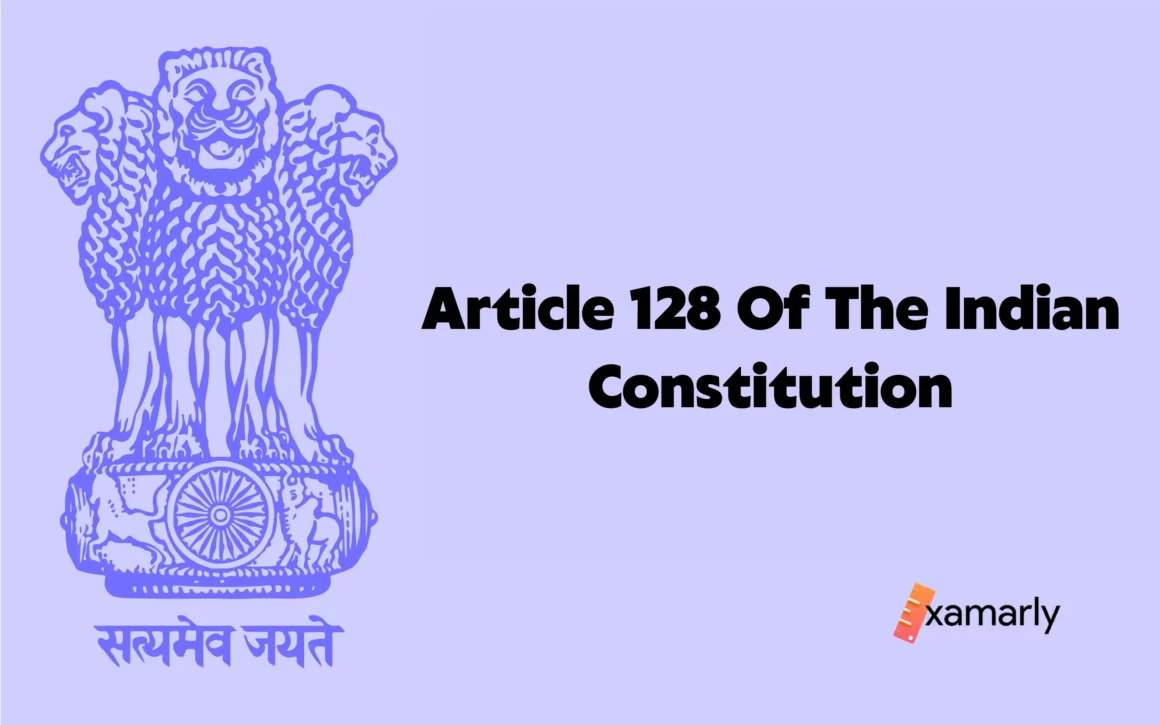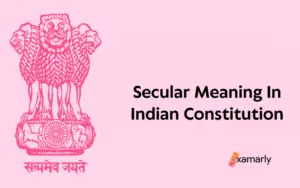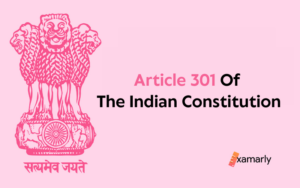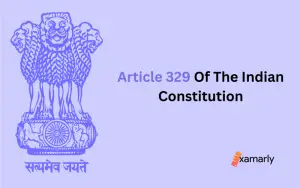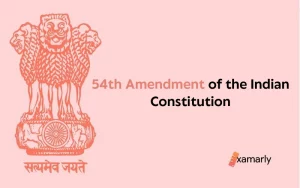Overview
Article 128 of the Indian Constitution talks about the retired Judges that can be appointed as acting Judges of the Supreme Court.
This Article can also be understood as an extension to Article 127 of the Indian Constitution.
We will understand in deep, the concepts present in this Article by analysing the clause present in this Article.
Article 128 Of The Indian Constitution – In Detail
The Clause – As it is & Explained
128. Attendance of retired Judges at sittings of the Supreme
Court.—Notwithstanding anything in this Chapter, 2 [the National Judicial
Appointments Commission] may at any time, with the previous consent of the
President, request any person who has held the office of a Judge of the
Supreme Court or of the Federal Court 3 [or who has held the office of a Judge
of a High Court and is duly qualified for appointment as a Judge of the
Supreme Court] to sit and act as a Judge of the Supreme Court, and every such
person so requested shall, while so sitting and acting, be entitled to such
allowances as the President may by order determine and have all the
jurisdiction, powers and privileges of, but shall not otherwise be deemed to be,
a Judge of that Court: Provided that nothing in this article shall be deemed to require any such
person as aforesaid to sit and act as a Judge of that Court unless he consents so to do.
The aforementioned Article says that despite of anything mentioned in this chapter 2, with the consent of the President the National Judicial Appointments Commission at any time it feels the need to can appoint retired Judges to act as Judge.
There are instances when a particular jurisdiction requires the intervention of experienced Judges. That is what is mentioned in Article 128 of the Indian Constitution.
Anyone who had held the office of a Judge of the Supreme Court or of the Federal Court can be requested by the National Judicial Appointments Commission to act as a Judge with the consent of the President of India.
Article 128 of the Indian Constitution also says that every single retired Judge who is acting as a Judge shall be entitled to all the allowances the President will offer him. These Judges will also have equal power and authority and jurisdiction as Judge of the Supreme Court.
The point to remember here is that despite of all the power, privileges, jurisdiction and authority they cannot be regarded as a full-time Judge of the court.
The last and the most important point here to remember is that despite of each and every word mentioned in this Article, no Judge is obliged lawfully to serve. If they do not wish to accept the request of the acting of the Judge, they do not have to go further with the request.
What is National Judicial Appointments Commission?
The Union Government of India was responsible for establishing the National Judicial Appointment Commission. They did this by proposing the 99th Constitutional Amendment, which was ultimately passed with a majority vote of two-thirds in both houses of parliament.
The Indian Constitution requires that judges be appointed to both the Supreme Court and the High Court, as well as transferred from one High Court to another, in accordance with Articles 124, 217, and 222 of the document. During the process of appointing justices prior to the establishment of the NJAC, the President sought the advice of the Chief Justice as well as other judges.
As a result, the President decided how to handle the transfers in the court system after discussing the matter with the Chief Justice. The NJAC Act specifies the steps that must be taken before the NJAC may make recommendations for individuals to be appointed to the Supreme Court and the High Courts, as well as for the movement of existing judges between these two courts.
A judge’s seniority, ability, and merit, in addition to any other requirements that may be listed in NJAC rules, must be considered when making a nomination recommendation for that judge. It is necessary for the President to make the nomination in accordance with these recommendations.
99th Amendment Of The Indian Constitution – In Relevance
The 99th amendment of the Indian Constitution amended Article 128 of the Indian Constitution by substituting the phrase ‘the National Judicial Appointments Commission in place of the phrase ‘the Chief Justice of India’.
Summing Up
We can conclude from this Article 128 of the Indian Consitution that if a case requires an experienced Judge to get involved in it, then National Judicial Appointments Commission can always request Judges who are retired and has the experience to act as Judge in order to regulate Justice.
FAQs
Can retired Judges deny the request from National Judicial Appointments Commission?
Yes, if a retired Judge does not wish to act as a Judge for a specific time, he can deny the request.
Do acting Judges get all the privileges the regular Judges have?
Yes, acting Judges are entitled to get all the privileges and powers that a normal Judge has.
Which amendment does Article 128 of the Indian Constitution is related to?
Article 128 of the Indian Constitution is related to the 99th Amendment of the Indian Constitution.


